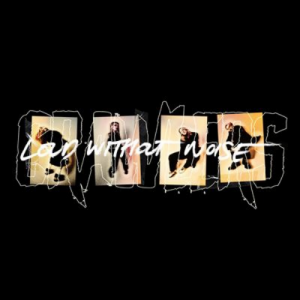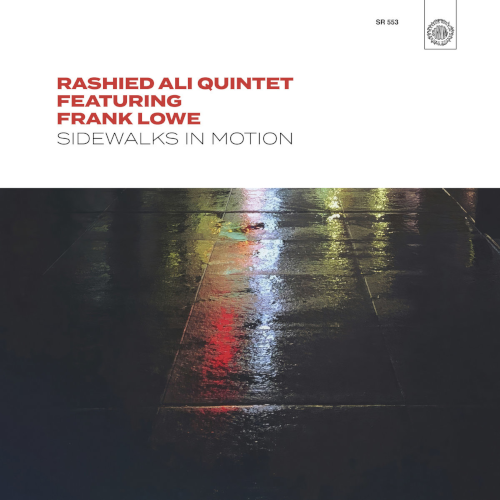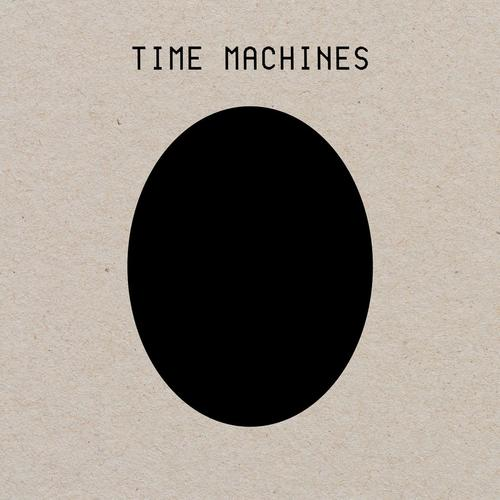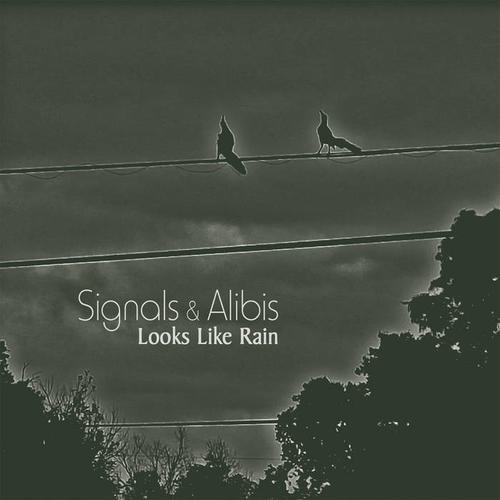 The internet is a weird and wonderful place. The music industry is also a weird and wonderful place. So when these two worlds collide, strange and beautiful things happen.
The internet is a weird and wonderful place. The music industry is also a weird and wonderful place. So when these two worlds collide, strange and beautiful things happen.
For many years, bands would play their way through dingy little clubs and venues until they could get signed, recorded and sent on local, then international tours. This is still an ever-present phenomenon, but the world wide web has created a whole new way of coming into the scene, of finding fans and record deals.
This is hopefully the first of a series of upcoming and past album and EP reviews of different artists, paralleled with a study of how these artists have come up through the internet, some of which without ever playing a live show, or in some cases not even showing their faces.*
Crawlers is an up-and-coming rock band from Liverpool that has been around for a couple of years with a dedicated fanbase, and burst into popularity on Tiktok at the end of 2021, with the bridge from their song “Come Over (Again) “making waves throughout the platform.
The whole concept of tunes being made into popular trends has certainly added a whole new aspect to the success of a song, many having thousands of videos published to them, of little gimmicks, jokes or even trauma dumping to them before they are ever released. Several artists, such as Yungblud, Chelji and Halsey have spoken out against their record labels pushing them to make their songs go viral on Tiktok, as it seems the amount of views they get are the greatest PR weapon at their disposal currently.Crawlers promoted themselves on Tiktok for a while, gaining steadily with a few videos in a fairly interesting format of “If you like so and so, you should listen to our band”. One of these very videos is how I came across them sometime in the summer of 2021, but they didn’t really stay in my mind until I heard “Come Over (Again)” over a video of lead singer Holly Minto lip-syncing to it, fully clothed in the shower, in November of 2021. They said “Is this what have to do to get this song to go viral?” and well, it certainly worked a charm, with the song being used by big-name Tiktok users such as Chelji, Briar May Sion and of course the band themselves. A year later, they are releasing their second EP, Loud Without Noise. A viral video of Holly’s endearingly awkward attempt to give a secret handshake to Paul McCartney during their graduation ceremony from Liverpool Institute for Performing Arts certainly have them a boost too.
What really sent this band into the stratosphere as a staple of ‘traumatok’ were the thousands of people using “Come Over (Again)” to express their own issues in short, striking videos that make up the exponentially popular platform, with the iconic line “Take her name out of your mouth” being used again and again to illustrate users’ hate towards and take a stand against those who have wronged them, whether it be abusers, parents, ex-partners or even in a few cases murderers.
On a platform that is so entirely based around any kind of audio that people can reinterpret and use in their own light, it’s at the same time an easy and hard thing to do, some finding success through pure blatant force of using a sound over and over again, or paying popular Tiktokers to do so. However, “Come Over (Again)” was one that only took a little push from Holly for people to latch onto it, particularly queer, traumatised youth. This created a whole community of people around the band, bringing together new and old fans. But what remained at the core of it all was the four members and they worked their way into people’s hearts with a combination of sentimental and meme-like content that made up the perfect Tiktok success story.
Several of their videos gained over a million views, some up to eight million. They have spoken out about how before Covid-19 lockdowns, their gigs used to be mostly empty; but since then, thanks to the internet and the virality of their songs, their shows have been selling out despite the elimination of live events for nearly two years. Since then, they have been on their first American tour, recently embarked on more UK and Europe tours, but most notably opened for My Chemical Romance and Måneskin, two of the biggest names in alternative music at the momentThis is on top of successful sets at many festivals across Europe including Reading and Leeds, all while three of them, Holly, Liv and Amy, finished their degrees at LIPA. It was at their Saturday Reading Festival set that they announced this mix-tape, Loud Without Noise (Polydor), before taking to Instagram and Tiktok to tell the world a few days later.
These six songs are rather a good summary of their music so far, a mix of absolutely heartbreaking powerful ballads laced with trauma and pain, followed by political, angry feminist bangers with clues in the name “Feminist Radical Hypocritical Delusional”.
Some lines are a resignation: “I’ll love myself if you touch me like that”; but then there’s a feeling of not bearing it any more that runs through the song, of pulling away and recognising your own desires, the realisation maybe of wanting a different way of living, but not being able to get the words out. “But I didn’t know how to say I don’t want you near me.” There is a sexual violence in the song, that far too many people, of all genders and walks of life, relate to. The way we are reduced to our bodies, the physical value of them. The way abusers take full advantage of that: “I’ll use my body to pay the rent”.
What’s the most haunting is how it gets justified, talked into being reasonable and what’s to be expected: “Said it was fine in your defence”. But it’s not. This song is a painfully beautiful outlet of trauma, but it also stands for getting yourself out, the slow realisation of what is happening and not wanting it, but not knowing the words to say to get out and the difficulty of talking about it after the fact.The band expressed on social media their label’s hesitation to release this song because of its hard hitting and explicit lyrics; but fans’ reaction to it, both at concerts and online, changed their minds. There was practically a demand for this song to be given to them, because, heartbreakingly far too many people found a voice for what they have or are experiencing in the words. There’s also an outlet for the desperation and pain in the gut-wrenching chords, drums and bass that builds the melody of this song, physically pulling on heartstrings and feelings of despair, but in a cathartic, relieving way.
The energy that builds between the band and their crowds during gigs reaches some kind of high on this song, the perfect follow-up to the feeling “Come Over (Again)” garnered in the past year. Many bands and singers create this kind of link, bonds even with their fans — especially live — but there’s something about Crawlers, particularly Holly and the feeling they create that is palpable, even through the screen and has made fans across the world yearn for them to come anywhere they can get to one of their gigs.
Ever so slightly though, in the latter half of the track, a certain defiance creeps its way in, up the bass line, through the drums and into the lyrics, but not quite the escape that’s needed. The rebellious, punk release comes in the shape of “Too Soon”, released as a surprise a few days early, a breakaway from the agony of the previous tracks, the defiance in the scream of “You did this, not me” is like a breath of fresh air.
“I couldn’t fix you, so I broke myself instead” is one of those lines that puts words to a feeling all too many of us have experienced. The way we give ourselves over to abuse, let ourselves be dragged down to a level we don’t belong at. This track is the realisation and then refusal of that, and while it breaks my heart to hear these lyrics that are laced with that little bit of magic that makes you feel what the singer is feeling, I think these verses, chords and choruses will be a game-changer for many.
The lyrics are something to being admired on their own with a grasp of language and creating images that is one of the things that has drawn me and many others to them. You can take away the music, vocals and performance and the song still stands on its own as almost a piece of literature, a romantic poem of images and metaphors with a modern, nearly mechanical twist.
The mainstream music world pushes away difficult subjects or cleverly disguises them in a twist of metaphors that you can read into or not. Big household name artists are pushing against this and bringing darkness into the light, such as Taylor Swift’s Midnights album, coincidentally released on the same day as “Hang Me Like Jesus”, or Billie Eilish and her brother Finneas O’Connor’s hard-hitting, raw lyrics of the two acoustic songs released last July. Sure, other bands have brought up difficult issues, but not in the way that is happening right now, with mainstream artists catching up to the alternative scenes, even in some places the lines blurring between the two, a big part of this being due to the likes of Tiktok.
It’s still as concerning as ever and not to mention plastered over the internet, creating a mass group effect of normalising unhealthy habits while being fully aware of doing so: “I’m not an addict, can’t you tell I’m self-aware?”
“Saw your message, I’ll ignore it, pretend you’re not there” touches on the influence of technology on our real life relationships with those around us in a very obvious way that are seeming to happen more and more through screens that make it ever so easy to pick and choose what to take in and what to ignore. This can be both a blessing and a curse, as with the concept of “ghosting” someone, simply refusing to acknowledge their existence over text or DMs. This all adds a whole new level of complexity to our society with a whole para-social existence.
It’s also making more and more music available to those who need it and making you more likely to find those tracks that get under your skin and stay with you for life. Its also a parallel of sincere, direct connections between the fans and the artists, and easy access for everyone to everything, but also orchestrated, tailored success.
It’ll be interesting in any case to watch Crawlers grow up as the industry evolves, with a foot in both the analogue and digital side of it all, having started out in the halls of Liverpool Institute for Performing Arts in an almost traditional manner, and then being one of the frontrunners of Tiktok success bands.-Frankie Harmonia-



